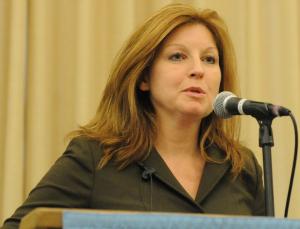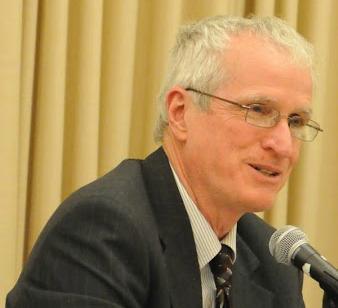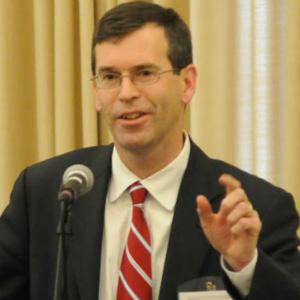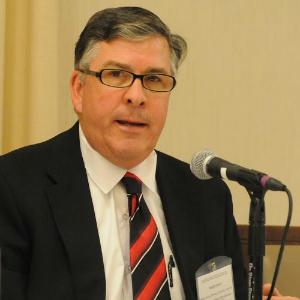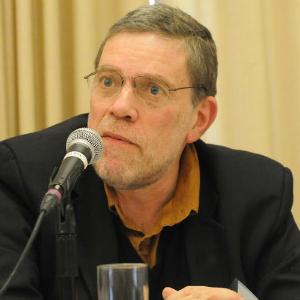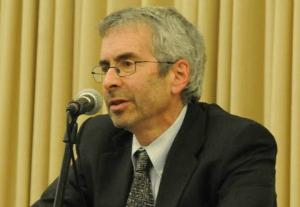National State Attorneys General Program Explores Future of State Charities Regulation
Two-day conference examines intersections between state regulation and the nonprofit sector.
| National State Attorneys General Program Senior Counsel Cindy M. Lott |
New York, February 26, 2013—Columbia Law School’s National State Attorneys General Program recently convened a two-day conference on the future of state charities regulation amidst rapid political, economic, and technological change.
Speakers and participants included several current and former state attorneys general as well as nearly 40 state regulators, federal regulators from the Federal Trade Commission and the Department of Treasury, private and non-profit practitioners, academics, students, and journalists. Attendees gathered at Columbia University’s Faculty House to explore how government can best regulate charities and nonprofits to protect the public without hampering organizations’ effectiveness.
The conference, titled “The Future of State Charities Regulation,” kicked off Feb. 7, with introductions from National State Attorneys General Program Senior Counsel Cindy M. Lott, who developed the
conference, Director James E. Tierney, who founded the National State Attorneys General program, and Dean of Social Justice Initiatives Ellen P. Chapnick.
| Director, National State Attorneys General Program James E. Tierney |
"State regulation of the charitable sector is broad and deep, involving many interrelated components and substantive areas,” said Lott. “This gathering at Columbia Law School of regulators, representatives from the charitable and nonprofit sector, private legal practitioners, academics and policy makers is a unique forum for cross pollination of ideas, efficiencies and critical problem solving in a sector vital to society."
Highlights of the conference included a panel moderated by Chapnick examining complex jurisdictional boundaries among states and the federal government as well as presentations by Tennessee Attorney General Robert Cooper, and federal agency advisors Ruth M. Madirgal, Department of Treasury and David Vladeck, Federal Trade Commission.
A working lunch featuring Tim Delaney, head of the National Council of Nonprofits and former solicitor general of Arizona, explored states’ role in regulating political activity and advocacy from the charitable and non-profit sector. New Hampshire Attorney General Michael Delaney moderated a separate discussion of how advances in technology create new expectations and opportunities for greater transparency; the panel featured perspectives from Assistant Attorney General Hugh Jones (Hawaii), Lucy Bernholz from Stanford University and Rick Cohen, a journalist from the "Nonprofit Quarterly."
| New Hampshire Attorney General Michael Delaney | Hawaii Assistant Attorney General Hugh Jones | Rick Cohen, Nonprofit Quarterly |
On the conference’s second day, conversations turned to emerging issues. Anthony Johnstone, former Solicitor General of Montana and now a constitutional law professor at the University of Montana Law School, moderated a conversation on state jurisdiction over religious organizations featuring Professor William P. Marshall of University of North Carolina Law School and former deputy White House counsel to President Clinton.
| Professor Richard Briffault |
Jim Manis, founder and chief executive officer of the Mobile Giving Foundation, was among the speakers who addressed how online communication creates new challenges and opportunities for both organizations and regulators. Lott led a panel on the role of states in regulating nonprofit healthcare, including Professor Jill Horwitz, health law expert from UCLA, Assistant Attorneys General Mary Beckman and Eric Carriker from the Massachusetts Attorney General's office .
The conference concluded Friday afternoon with a discussion looking ahead to potential new regulatory structures and practices that may arise in the future with a presentation by Marcus S. Owens, partner at Caplin & Drysdale and former Director of the Exempt Organizations Division of the IRS.
